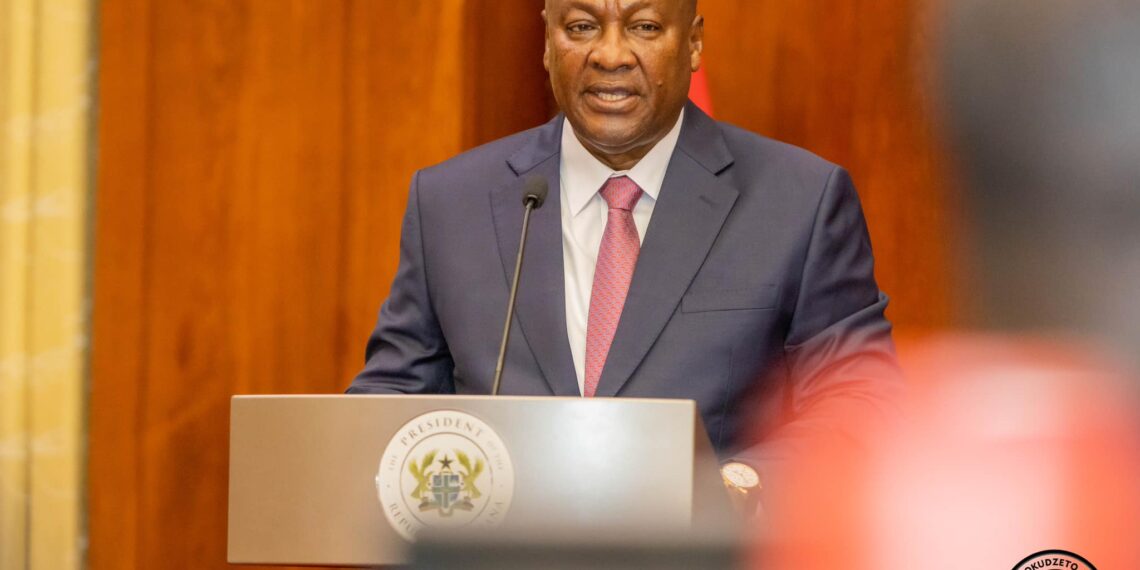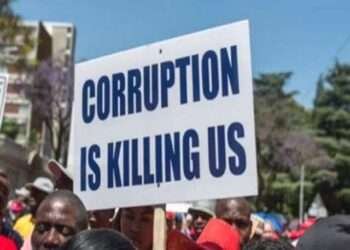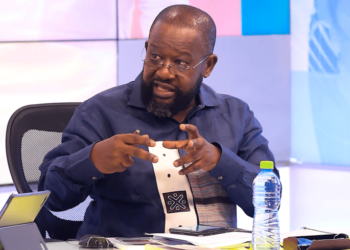Former Member of Parliament for Kumbungu and respected political commentator, Ras Mubarak, has issued a passionate call to President John Dramani Mahama to consider drastically downsizing Ghana’s diplomatic missions as part of urgent cost-cutting measures needed to rescue the country’s ailing economy.
Ras Mubarak urged the new administration to align its foreign policy spending with the stark realities facing millions of Ghanaians.
According to Ras Mubarak, while the Mahama administration has already taken commendable steps in reducing the size of government, cutting down ministries and ministerial appointments—these efforts must be extended beyond the corridors of power in Accra.
He argued that the Ministry of Foreign Affairs, in particular, holds significant opportunities for savings that could be rechanneled into critical sectors such as healthcare, education, infrastructure, and housing.
“I wish to focus today on the Ministry of Foreign Affairs and to propose the downgrading and or scrapping of Ghana’s embassies in the following countries. Algeria, Austria, Benin, Burkina Faso, Congo, the Czech Republic, Equatorial Guinea, Guinea, Israel, Ivory Coast, Kuwait, Liberia, Libya, Malta, Namibia, Norway, Niger, Rwanda, Serbia, Sierra Leone, Trinidad & Tobago and the United Arab Emirates”.
Ras Mubarak, former NDC MP for Kumbungu
He asserted that many of these missions serve countries with limited trade or diplomatic engagements with Ghana and therefore offer little return on the significant investments required to maintain them.

In some cases, he argued that, even though Ghana enjoys privileges like free chancery buildings, the ongoing operational expenses—rent, utilities, staff salaries, and logistics—continue to burden the state.
For Ras Mubarak, the idea that Ghana should be sustaining costly embassies in countries that contribute minimally to its diplomatic or economic advancement is simply untenable.
“We can’t keep paying for high rent costs while kids in schools up and down the country sit on the floor. Keeping these embassies cannot be justified when clinics in rural Ghana are an eyesore. By scrapping these missions, Ghana can save on operational costs, including rent, utilities, salaries, and other expenses.”
Ras Mubarak, former NDC MP for Kumbungu
It is, in his view, a matter of misplaced priorities that must be urgently corrected if the country is to chart a path toward sustainable development.
Dealing with Job Losses
Beyond the fiscal implications, Ras Mubarak also anticipates potential concerns over job losses, especially for Ghanaian staff working at the affected missions. However, he is quick to suggest that redeployment—not retrenchment—is the answer.

Diplomats and staff from scrapped embassies could be reassigned to more strategic missions where Ghana has deeper and more impactful engagements. This would not only safeguard jobs but also ensure that Ghana’s diplomatic resources are allocated more effectively.
He further argued that such a restructuring of Ghana’s diplomatic footprint would not be unprecedented.
“The 21st century requires governments and public institutions to be smaller, without compromising efficiency. A typical example would be what Australia, a country more advanced and prosperous than Ghana, is doing.
“Ms. Owen-Jones, the Australian High Commissioner, oversees her country’s diplomatic relations in Burkina Faso, Côte D’ d’Ivoire, Guinea, Liberia, Mali, Senegal, Sierra Leone and Togo. That is prudence”.
Ras Mubarak, former NDC MP for Kumbungu
There is no reason, Ras Mubarak insisted, why Ghana’s embassy in Berlin, for example, could not take on additional oversight responsibilities for nearby European nations, or why High Commissions in London and Washington cannot operate with more efficiency and less bureaucracy.
In cases where Ghana still needs a modest presence, Ras Mubarak recommended the appointment of Consul Generals instead of maintaining full-fledged embassies.
These leaner, more focused diplomatic representations could serve essential functions without the heavy administrative and financial load that comes with traditional embassies.
At its core, Ras Mubarak’s letter is a rallying cry for moral and fiscal discipline. It reflects a broader demand for leadership that is responsive to the lived experiences of ordinary Ghanaians—leadership that recognises the urgency of investing in hospitals instead of diplomatic dinners, and in classrooms instead of consular cocktail events.

The letter also signals the beginning of what he promises will be a series of citizen-led recommendations aimed at helping the Mahama government make difficult but necessary decisions in the national interest.
His proposal challenges not just the government, but the entire political establishment, to reassess what truly matters—and who government spending should ultimately serve.
READ ALSO: MTN Ghana’s $300 million Investment Plan Gains GIPC’s Full Support




















